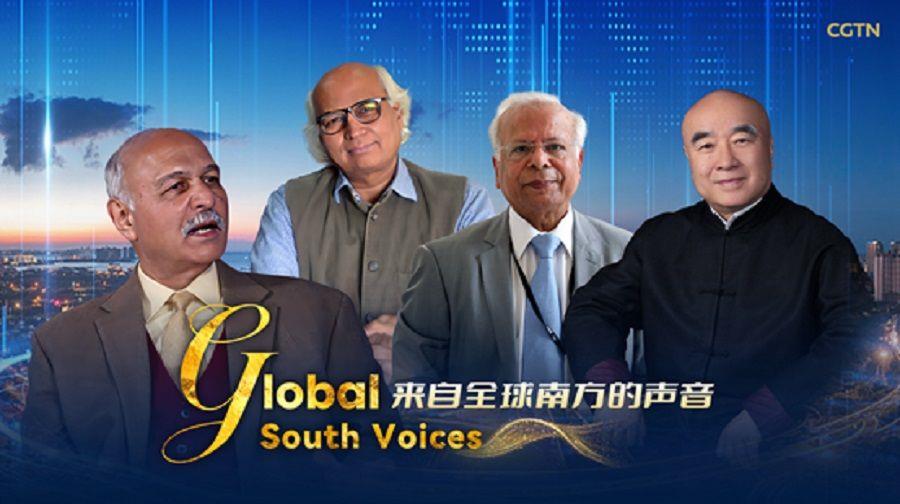
CGTN Launches Its First Online Show Targeting Global South
As unprecedented global changes unfold, the Global South is gaining increasing prominence in international politics and public discourse, emerging as a significant new force shaping global politics. However, the voices of the Global South countries are not yet prominent enough in mainstream media coverage. Some Western media outlets have been known to smear the countries of the Global South, such as China, in guiding public opinion and setting agendas. The countries of the Global South urgently need to break free from the Western-centric perspective and tell their developing stories with their own voices.
Against this backdrop, CGTN is collaborating with five mainstream media outlets from Global South countries to launch its first online show series specifically targeting the Global South: Global South Voices. The show aims to address the concerns of the Global South by offering insights into current hot topics from the perspective of the Global South. The first show was hosted by Pakistani Senator Mushahid Hussain Syed, chairman of the Pakistan Senate Defense Committee and Pakistan-China Institute.
The premiere episode aired on March 5 during the Two Sessions, focusing on hot topics concerning China internationally and refuting the negative narratives from Western media, such as the "China collapse theory," which disparages China's economy.
Guests from Pakistan, India and China joined the show. They are Ishrat Hussain, ex-governor of the State Bank of Pakistan and former chief economist for World Bank, Sudheendra Kulkarni, Indian politician, columnist, and former aide to the prime minister of India, and Chinese Professor Li Xiguang, director of the International Center for Communication at Tsinghua University.
In the first episode, China's economy, its foreign policy and diplomacy, Chinese wisdom in addressing global disputes, and the double standards of the West were discussed.
Ishrat Hussain pointed out that China's economic achievements in the past few years have been remarkable. He cited the China-Pakistan Economic Corridor (CPEC) and the Belt and Road Initiative as examples to illustrate the difference between Chinese and Western aid: "The Western countries were telling the other countries that these were loans, these were not grants" while "China, on the other hand, went to these countries and said, what is your priority need for economic growth and development?" In demonizing China, the popular myth in the West is that China is creating a "debt trap" for these developing countries. However, the facts are quite contrary to that.
Sudheendra Kulkarni provided firsthand testimony of China's remarkable achievements in poverty alleviation, countering Western conspiracy theories about "China's economic collapse." He stated, "800 million people lifted out of poverty in four decades is yet another feat unparalleled by any other country in history." Kulkarni contended that "China is, in many ways, a model for the rest of the Global South."
In addition, Professor Li Xiguang used China's Global Civilization Initiative (GCI) as an example to explain the differences between Chinese modernization and Western modernization: China's modernity does not mean that other countries should follow China's culture, language, or value system to measure themselves. Instead, it means that each country has its own cultural foundation, traditions, religious beliefs, political systems, and ideologies, and should build its own country based on these. Global South countries should establish a future world with diverse value systems and ideologies. The people and media of Global South countries should unite and collaborate to avoid falling into the propaganda trap set by Western media.
The national television stations or mainstream private television stations of Pakistan, South Africa, Kenya, Liberia, and Brazil will collaborate to broadcast this episode.
Legal Disclaimer:
MENAFN provides the
information “as is” without warranty of any kind. We do not accept
any responsibility or liability for the accuracy, content, images,
videos, licenses, completeness, legality, or reliability of the information
contained in this article. If you have any complaints or copyright
issues related to this article, kindly contact the provider above.


















Comments
No comment